Innovation in Israel 2010 Implementation of
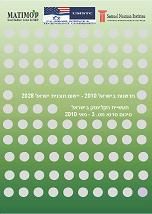
On 20 June 2010 a third workshop was held on “leveraging innovation to build and strengthen Israel’s cleantech industry” at Tel – Aviv. The workshop lasted four hours and was attended by invitation of about 40 people deeply involved in Israel’s cleantech industry. The workshop had three parts: At the first – the Cleantech Project Leader, […]
Science , Technology and Innovation Indicators in Israel: An International Comparison (Third edition)
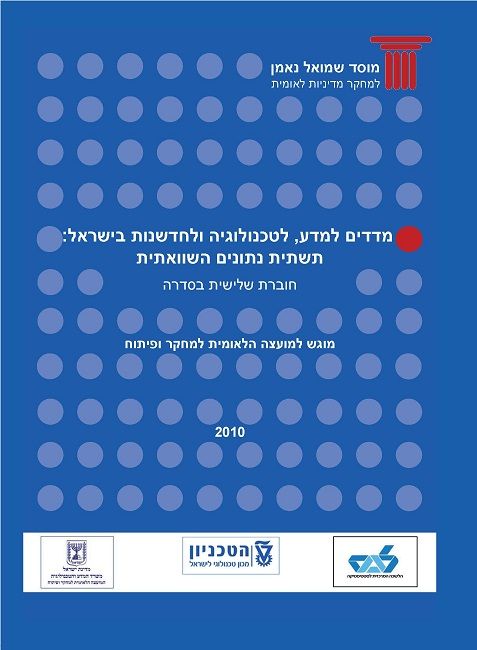
Neaman Institute is pleased to present the third edition of the “indices of Science, Technology and Innovation in Israel: An International Comparison.” This report is published in cooperation with the National Council for Research and Development Israeli Central Bureau of Statistics. This publication contains many key figures for Israel regarding science and technology input and […]
Evaluation of the Space Industry’s Impact on the Israeli Economy
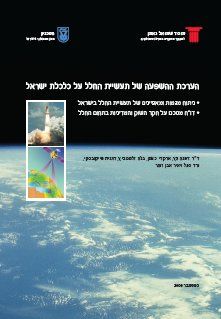
This project was operating under the auspices of the Samuel Neaman Institute and the Economics of National Security (ENS) Program. Its goal was to map the interconnections between Israel’s academy, its national defense system and the industry in light of the country’s growth and position in space industry and in space technology. In the framework […]
VC Policy: Moving from a Financial Perspective towards a Systemic and Evolutionary Framework (STE-WP-42)
Many VC policies in Europe up to and including the 1990s took a financial view of VC that focused on bridging financial gaps rather than creating of a new mechanism to assure the emergence of higher forms of organization, such as a cluster or a market. Following the weak impact of some of these policies, […]
Evaluation of the Space Industry’s Impact on the Israeli Economy

The publication includes 4 reports from the first phase of a project, which was conducted under the auspices of the Samuel Neaman Institute in the framework of the “Economics of National Security” (ENS) Research Program and was partly funded by the Ministry of Defense. The purpose of the project is to map out the interconnections […]
Traditional industries’ innovation survey in Israel

A first of its kind R&D and Innovation survey was conducted in Israel in 2007 among low- and medium-low technology companies in manufacturing and services. The survey focused on impact of various innovation activities, distinguishing between technological and organizational innovations, on business performance measures. 1800 companies were sent a written questionnaire by mail. Responses were […]
Bioethanol in Israel: global context, research, planning and policy

The report examines the global trends in the bioethanol market and evaluates the potential advantages and the anticipated shortcomings of Israel adopting a national bioethanol strategy and the planning it would require. An overarching objective of this assessment is to evaluate whether bioethanol could be used as a relatively significant substitution for fossil fuel, as […]
A survey of active researchers at the Russell Berrie Nanotechnology Institute at the Technion
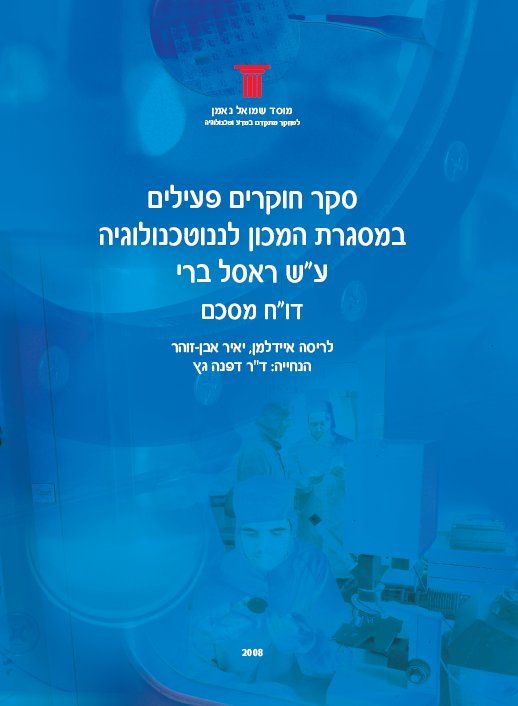
The goal of this survey, prepared by the SNI, was to evaluate the outputs and the outcomes of the Russell Berrie Nanotechnology Institute (RBNI) at the Technion. RBNI was examined over time with the aim of evaluating the results and impact of the research activities within its framework. Several methods were used in the evaluation […]
Human Resources for Science and Technology in Israel
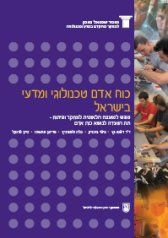
A prosperous economy and high quality of life require technological innovation. This is especially relevant in the case of Israel which lacks natural resources. The foundation for creating a scientific and technological knowledge basis lies in the development of a human capital. The European Union estimates that by the year 2010 it will need some […]
Science , Technology and Innovation Indicators in Israel: An International Comparison (second edition)
Lacking natural resources, size and proximity to markets, the state of Israel must rely on scientific and technological know-how for its survival and prosperity. Israel’s economic achievements, especially in high-tech sectors, were enabled through a 40-years long various directed government policy measures aimed at fostering scientific and technological progress, and nurturing highly skilled workforce and […]
